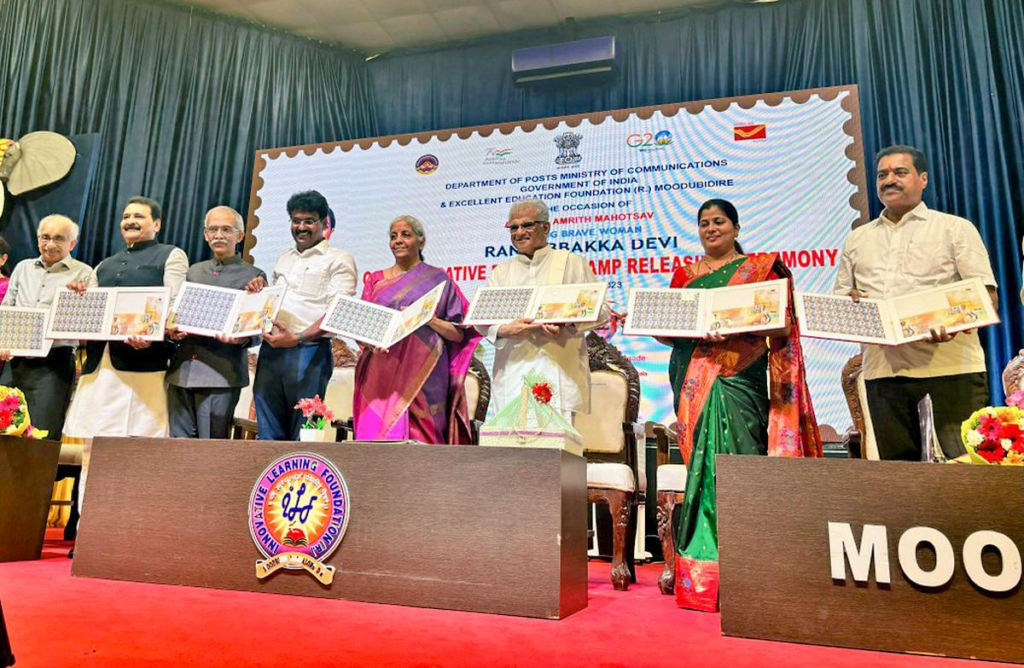Union Finance Minister Nirmala Sitharaman has stated that following the 2024 census, the Center will begin enforcing the women’s reservation bill. Sitharaman said that the women’s bill became a reality because Prime Minister Narendra Modi has always believed in the role of women in nation building. She was speaking following the release of a commemorative postal stamp in the name of Rani Abbakka at Moodbidri in Dakshina Kannada district on Friday.

Sitharaman praised the bravery and valour of Rani Abbakka, the Ullal queen who battled the Portuguese in the sixteenth century, and stated that the Union government has made efforts to record the contributions of several fighters who are still unidentified but who fought against imperial forces.
She stated that as part of Aazadi Ka Amrit Mahotsav, the government has assembled 14,500 stories in a digital district repository that highlights locations associated with the liberation movement.
Three volumes about the role of women in the freedom movement, women in the Constituent Assembly, and tribal leaders of the freedom struggle will be published by the Union Ministry of Culture in collaboration with Amar Chitra Katha.
In coastal Karnataka, the minister of finance expressed the expectation that a Sanik school would be established in Rani Abbakka’s honour. She commended Vasudev Kamath, the artist, for his portrayal of Rani Abbakka, which was included on the commemorative postal stamp.
In attendance were S Rajendra Kumar, the chief postmaster general for the Karnataka Circle, and Veerendra Heggade, the Sri Kshetra Dharmasthala dharmadhikari (hereditary administrator).
Furthermore, the Women’s Reservation Bill 2023, which mandates 33% reservation for women in the Lok Sabha before the general elections of 2024, was rejected by the Delhi High Court on Friday.
The plea was submitted to the High Court by Delhi-based attorney Yogamaya MG, who asked that the Central government be directed to “provide a firm and expedited date for the implementation of the Women’s Reservation Bill 2023, considering the prolonged period of uncertainty surrounding the delimitation process.”














